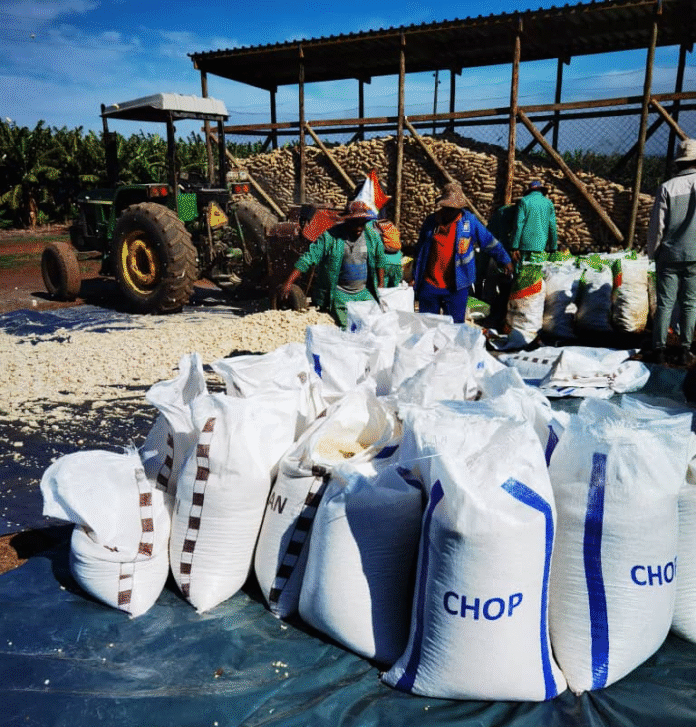
Maize production from farmer companies under the Lower Usuthu Smallholder Irrigation Project Phase II (LUSIP II) surged from 191.9 tonnes in 2024 to nearly 300 tonnes in just one season, marking a remarkable 56.33 per cent increase.
Among the top-performing groups were Vulematfuba, Ngcongco, Sikhutsele, Gangakhulu, Mnanjane, Malabane, and Bhatimane Farmer Companies.
These entities have embraced modern farming methods and are turning once-idle land into productive agricultural zones. According to Eswatini Water and Agricultural Development Enterprise (EWADE) Corporate Communications Manager Nokwazi Hlophe, this leap in output reflected EWADE’s effective farmer company model, resilience and commitment of Eswatini’s smallholder farmers.
Hlophe said the produce was now secured at Matsapha under the guardianship of the National Maize Corporation (NMC), marking a major step forward in the nation’s march toward food sovereignty. “What was once a patchwork of underutilised fields is now a reliable source of staple food, helping to cushion Eswatini against external shocks and reduce its dependence on imports,” she said.
Hlophe emphasised that this was a powerful moment in the national development journey. “We are not just talking about food security in theory but we are seeing real, measurable impact from our farmer companies. It is a milestone that reflects what can happen when vision, policy, and community align,” she said. She mentioned that at the heart of this transformation was EWADE’s farmer company model which was a collaborative system of collective production, shared infrastructure, technical assistance, and market access.
Hlophe said the model aligned with the ministry of agriculture’s strategy, under the leadership of Minister Mandla Tshawuka, which included reducing food imports, elevate rural productivity, and reclaim Eswatini’s agricultural potential. She said LUSIP II strengthened climate resilience, and with modern irrigation infrastructure, smallholder farmers were longer at the mercy of erratic rainfall.
Instead, farmers now produced year-round, contributing to Eswatini’s climate-smart agriculture strategy and overall sustainability agenda. “The ripple effects go far beyond tonnage. Across participating chiefdoms, communities are being revitalised. Jobs are emerging, youth are returning to farming, and women are increasingly taking leadership roles in crop production. The story here is bigger than maize. “It is about communities reclaiming their identity through productivity. It’s about shifting the narrative, Eswatini can feed itself, and our smallholder farmers are proving that every single day,” she said.
Hlophe said with the country still dependent on imported maize, the progress was not only symbolic, but strategic. The farmer companies’ growing contribution was cushioning the country against global food supply shocks while reinforcing national pride in local productivity.
“As Eswatini advances toward its food sovereignty goals, the LUSIP II farmer company model offers a tested, scalable, and community-rooted solution, one that places trust in local knowledge, builds technical capacity and positions smallholder farmers as agents of national transformation,” she said. EWADE Agriculture Development Manager Zwelethu Dlamini said they were witnessing the results of improved water access, better agronomic practices, and a coordinated input supply model.
“By aligning technical support with real-time field needs, we are empowering farmers to meet commercial volumes while sustaining soil health and productivity,” he said.
Dlamini said each farmer company functions within a support ecosystem that included seasonal land preparation, tractor hire services, post-harvest handling training, and market linkages.
He said this model addressed more than food production, tackled unemployment, rural poverty, and youth disengagement in agriculture.








